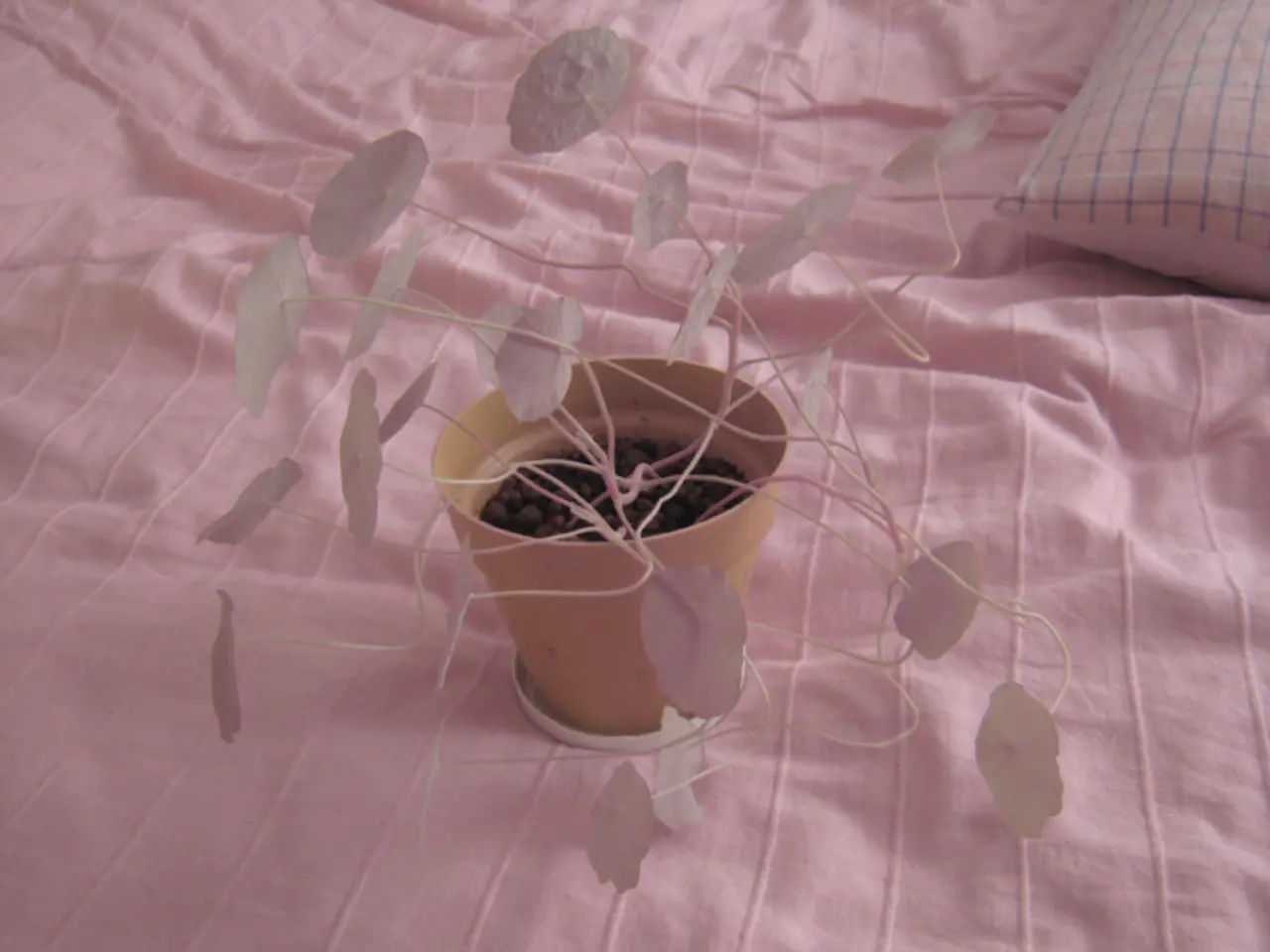Common Odors Prove Inconvenient for Bed Bug Survival
In the quest to keep your home free from unwanted guests, bed bugs are a common concern. Fortunately, there are natural solutions that can help repel these pests, making your living space a less inviting environment for them. Here's a guide to using essential oils, herbs, and citrus peels as bed bug repellents.
Orange peels, packed with the compound d-limonene, are highly effective at repelling bed bugs. Rubbing fresh orange peel directly on furniture or window sills can create a barrier that these pests find unappealing. Simmering orange peels in water releases their aroma, creating a DIY citrus spray for mattress seams, curtains, and bedposts.
Garlic, with its pungent scent, is another natural bed bug repellent. Boiling crushed garlic cloves in water and using the mixture as a spray in less-trafficked areas like the underside of beds, corners of closets, or behind furniture can help keep bed bugs at bay. Garlic's sulfur compounds linger in the air, making the environment uncomfortable for insects.
Basil, with its fresh, peppery scent, also confuses and irritates bed bugs. Crushing basil leaves and placing them in a breathable sachet under the mattress or inside pillowcases and drawers can repel these pests.
Essential oils like lavender, tea tree oil, peppermint, eucalyptus, clove, geranium, and others can be used in a diffuser to spread their scents through the room. Geranium essential oil, especially rose geranium, is a gentle deterrent against bed bugs with a floral, slightly citrusy scent.
To prepare homemade sprays, mix a few drops of essential oils with water (and optionally a small amount of vodka or witch hazel as a dispersant) in a spray bottle. Spray this mixture along mattress seams, baseboards, bed frames, under furniture, closets, and other suspected hiding places. Soaking cotton balls with essential oils like lavender, peppermint, or cedarwood and placing them in dark corners, under beds, inside drawers, and other bed bug hotspots can also repel these pests.
While vinegar itself doesn’t repel bed bugs, some people use diluted vinegar sprayed on surfaces for its slight repellant effect and cleaning properties. However, it's not a primary repellent.
These natural remedies are non-toxic and safe for homes with children and pets. However, they may only repel or discourage bed bugs and are ineffective against infestations on their own. Combining these with professional treatments is advisable if you have an infestation.
Keeping a small potted basil plant in the bedroom or near windows and doors can also repel bed bugs. In summary, rely on sprays, cotton ball placements, and fresh herb/peel scatterings to use these natural scents as repellents, understanding that they help keep bed bugs away but do not replace conventional eradication methods if infestation occurs.
- Incorporating basil into your home decor with a potted plant in the bedroom or near windows and doors can serve as a natural bed bug repellent.
- For less-trafficked areas like the underside of beds, corners of closets, or behind furniture, simmering orange peels in water creates a DIY citrus spray that can help keep bed bugs at bay.
- Essential oils like lavender, tea tree oil, peppermint, eucalyptus, clove, geranium, and others can be used in a diffuser to spread their scents throughout your home as a natural bed bug repellent.
- To repel bed bugs, consider drying crushed garlic cloves and storing them in breathable sachets under the mattress, inside pillowcases, and drawers.
- Layering your lifestyle choices with health-and-wellness products like skin-care items, fashion-and-beauty products, and food-and-drink can complement the home-and-garden strategies for warding off bed bugs.
- While vinegar doesn’t repel bed bugs on its own, mixing it with water for cleaning and spraying surfaces provides a slight repellant effect and enhances cleanliness in your living space.
- It's essential to understand that these natural remedies for bed bug repellents are not a replacement for professional treatments during infestations, but rather supportive measures to supplement your home-and-garden routine.




